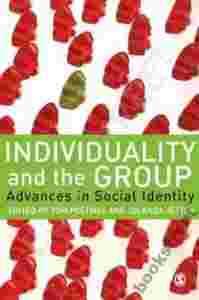|
Social identity research has transformed psychology
and the social sciences. Developed around intergroup
relations, perspectives on social identity have now been
applied fruitfully to a diverse array of topics and
domains, including health, organizations and management,
culture, politics and group dynamics. In many of these
new areas, the focus has been on groups, but also very
much on the autonomous individual. This has been an
exciting development, and has prompted a rethinking of
the relationship between personal identity and social
identity - the issue of individuality in the group.
This book brings together an international selection
of prominent researchers at the forefront of this
development. They reflect on this issue of individuality
in the group, and on how thinking about social identity
has changed. Together, these chapters chart a key
development in the field: how social identity
perspectives inform understanding of cohesion, unity and
collective action, but also how they help us understand
individuality, agency, autonomy, disagreement, and
diversity within groups.
This text is valuable to
advanced undergraduate and postgraduate students
studying social psychology where intergroup relations
and group processes are a central component. Given its
wider reach, however, it will also be of interest to
those in cognate disciplines where social identity
perspectives have application potential.
|
|

